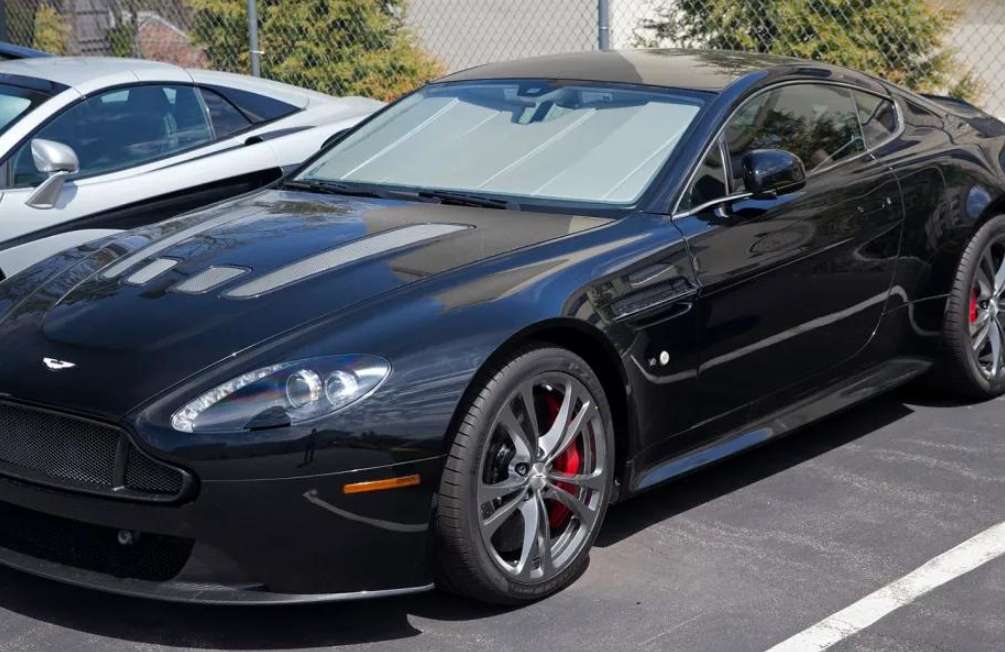The Downfall of America's New Automotive Startups!
Advertisements
In recent years, the global automotive industry has witnessed an unprecedented shift towards electric vehicles (EVs), and the race appears more competitive than ever. While electric vehicle markets in various countries, particularly China and the United States, have seen a surge in new entrants, this growth has often come with its own set of challenges. The landscape is dotted with stories of triumph and failure, with numerous startups facing intense competition and operational difficulties.
In China, a market that has rapidly evolved into one of the largest for electric vehicles, established manufacturers and newcomers alike find themselves embroiled in fierce price wars. Reports indicate that many companies struggle to survive, with only a handful like BYD and Li Auto managing to turn a profit. Startups like Nanjing Byton, Rugao Saleen, and Hangzhou Yangtze EV have faced bankruptcy or scandal, illustrating the harsh realities of the industry.
In stark contrast to the turmoil in China, one might wonder how the new generation of American automakers fares. Are they less encumbered by financial issues, creating a more orderly market with profitable companies and glowing financial reports? Unfortunately, the answer is far from reassuring, as many American automotive startups find themselves grappling with their own crises.
Take Tesla, for example. Once hailed as the king of the electric vehicle market, Tesla seems to be facing serious challenges. Their latest product, the much-anticipated Cybertruck, has struggled to meet delivery expectations. This year, the company reported significant declines in vehicle deliveries, and the stock price plummeted by 30% in the first quarter. Tesla’s performance in the Chinese market was also disheartening, with retail sales dropping by nearly 20% compared to the previous year. The situation worsened with production setbacks in both Europe and India, leading the company to cut 10% of its workforce, all while facing lowered stock ratings from investment firms.

Despite Tesla’s formidable reputation, it seems to be a canary in the coal mine for American electric vehicle startups. Other companies are experiencing even deeper setbacks. Nikola Corporation, for instance, has gained notoriety for its fraudulent practices under founder Trevor Milton, who lured investors with flashy marketing rather than actual product development. Milton's strategy centered around hydrogen fuel cell technology, which, although theoretically promising, has faced insurmountable barriers in terms of cost and practical application.
Nikola’s rise and subsequent fall is a cautionary tale about the dangers of overpromising in a highly competitive industry. Milton's flimsy claims about revolutionizing the market culminated in a barrage of legal troubles as the company became the subject of investigations. The company’s stock, once soaring above Ford's market value, has sunk dramatically following revelations of dishonesty in its business practices.
Then there is Lucid Motors, a company founded by a group of former Tesla employees. Initially perceived as a serious competitor in the luxury EV segment, Lucid has faced severe financial losses, reported to be as high as $338,000 per vehicle sold, even with substantial investment from Middle Eastern backers. The irony is that despite producing a high-quality vehicle in the Lucid Air, which offered impressive performance metrics, the company has struggled to convert its engineering prowess into sales in a market where Tesla continues to lead.
Rivian, another notable player, has not been able to escape the quagmire either. While the company garnered considerable investment from Amazon and Ford, and once saw its stock rise to dizzying heights, it has since experienced a precipitous decline, with reports of losing nearly $110,000 on each vehicle sold. Rivian's founder, an MIT-educated engineer, had a vision to innovate in the electric truck market, yet structural difficulties and financial mismanagement have dampened prospects significantly.
Finally, Fisker Automotive, founded by designer Henrik Fisker, has drawn comparisons to Tesla since its inception. However, multiple recalls and financial turbulence led the company into bankruptcy in 2013. Despite efforts to reemerge with new electric models, including plans to enter the competitive Chinese market, Fisker continues to struggle and faces real danger of collapsing once again. The stock price tells a grim story, dropping significantly from highs just a few years prior, while ongoing investigations cause further turbulence.
These stories reveal a broader truth: the electric vehicle race is fraught with challenges, and American companies are not immune to the industry's ruthless realities. Just as in China, the path is littered with hopes and dreams that have turned into financial nightmares.
Critics may often point fingers at Chinese EV manufacturers for their unsustainable practices—blasting them for fierce price wars and losses. However, the unfolding saga in the U.S. automotive startup space serves as a stark reminder that the electric vehicle market, irrespective of geographic borders, poses similar challenges. Both landscapes share a commonality; they reveal just how perilous the automotive industry has become, especially for newer entrants attempting to dethrone the giants in the field.
Ultimately, as we analyze the contrasting narratives of electric vehicle makers across the globe, it becomes clear that time is essential. Gaining traction in such a rapidly evolving market requires patience, stamina, and considerable financial backing. Perhaps in due time, the newer brands will find their footing, but for those currently struggling, like Tesla's tarnished rivals, the road ahead seems daunting. Therefore, the industry could greatly benefit from a pause in reckless pricing wars, allowing for healthier competition grounded in sustainable business practices and innovation.